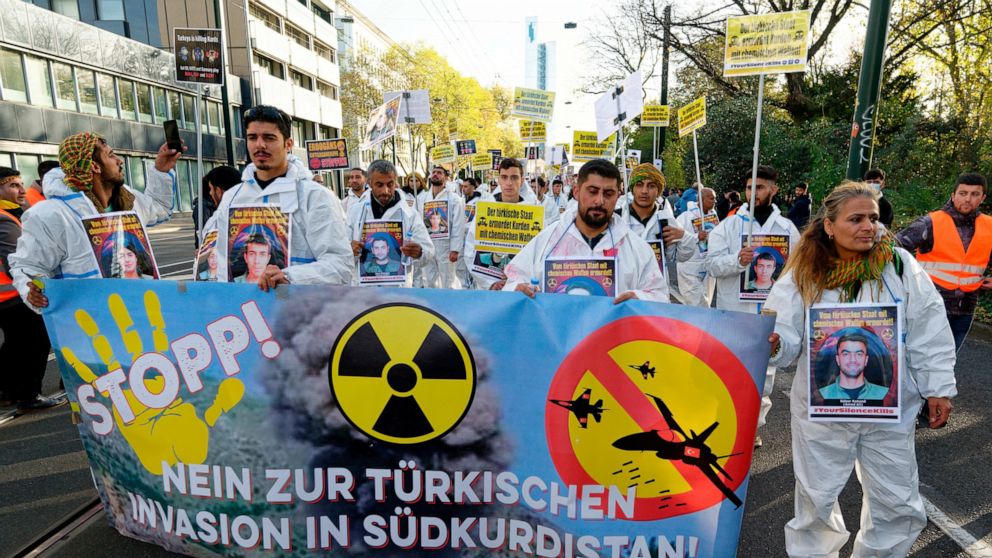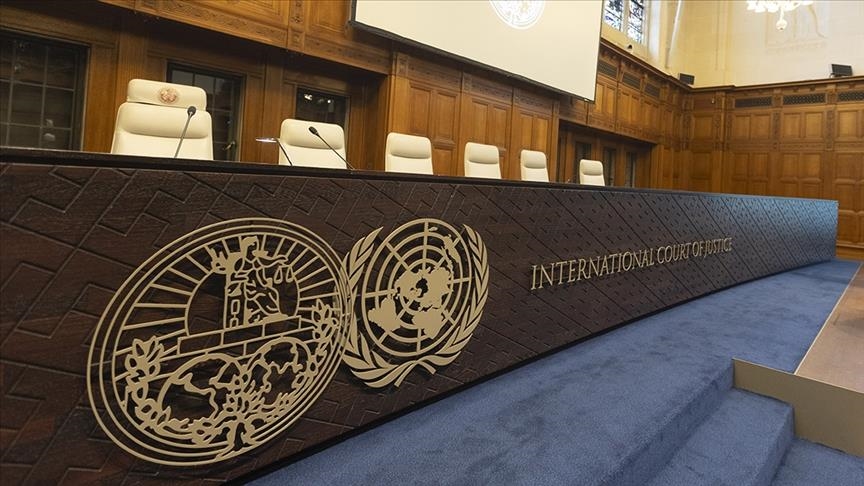Powell Slams Israeli Wall
"The draft resolution would make the point that the separation wall is illegal and should be stopped," Haaretz reported Saturday, October 4, quoted Palestinian Ambassador to the U.N. Nasser al-Kidwa.
He added he would further ask Arab nations Monday, October 6, to boost the move and request an emergency Security Council meeting to debate it.
Israel announced Thursday, October 2, a tender to build some 660 settlements in the occupied Palestinian West Bank, one day after deciding to erect the one-billion-dollar second phase of the separation wall.
"We were hoping the Americans would be able to stop these activities, but this doesn’t seem to be the case," lamented the Palestinian diplomat.
The 600km-long wall will cut occupied Jerusalem off from the rest of the West Bank.
It will eventually snake some 900 kilometers (540 miles) along the West Bank and leave even larger swathes of its territory on the Israeli side and could cost up to $2.2 million a kilometer or a total of $1.8 billion.
The first phase of the barrier was completed in July in the northern West Bank, but further construction has been delayed by differences between Israel and Washington over the wall’s route.
A U.N. report underlined Tuesday, September 30, that the separation wall marked illegal annexation of Palestinian territory and must be condemned by the world community.
In a related development, U.S. Secretary of State Colin Powell dismissed as not satisfactory Israeli attempt to leave gaps in the second phase of the separation wall.
"The gaps in and of themselves do not satisfy me. The question is what becomes of the gaps in due course," Powell told The Washington Post.
Powell said the U.S. administration is yet to decide what kind of action it will take in view of the Israeli wall and settlements decisions.
"We have not yet come to a conclusion about what to do and what our action should be," Powell said, adding that officials "are examining the fence, where it’s going, how it’s going, the settlements and what our obligations are under the law with respect to these matters."
"We have made it clear that the fence . . . is a problem," Powell told the American daily, outlining the argument the administration has made to the Israelis.
President George W. Bush had previously described the wall as "a problem" obstructing the creation of a Palestinian state.
However, he dropped the term four days later when Sharon was visiting him in the White House.
"If you want to put a fence on something that is a recognized border, the green line, then put a fence on your property line. But the more you intrude in Palestinian areas and the more it looks like it could be contiguous intrusion around large sections of Palestinian land that would prejudge subsequent negotiations as to what a Palestinian state may look like, that’s a problem," Powell stressed.
Among the questions U.S. officials are examining is whether construction costs associated with the fence project can be deducted from $9 billion in loan guarantees for Israel.
U.S. officials have indicated they plan to deduct from the loans what they estimate Israel spends on settlements in Palestinian territory, as allowed by law


